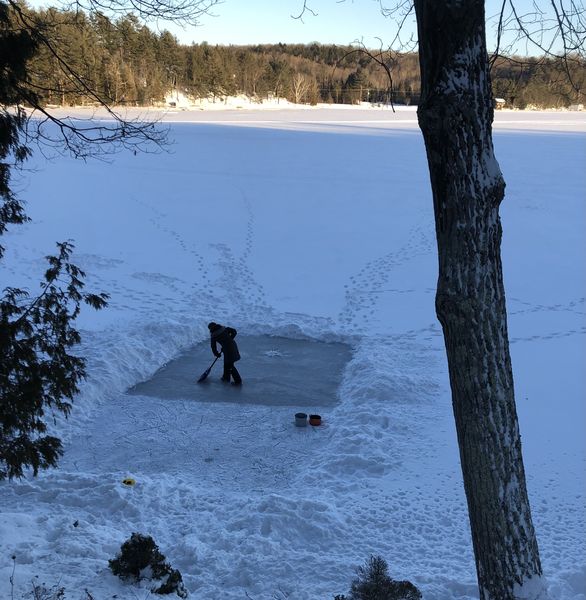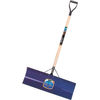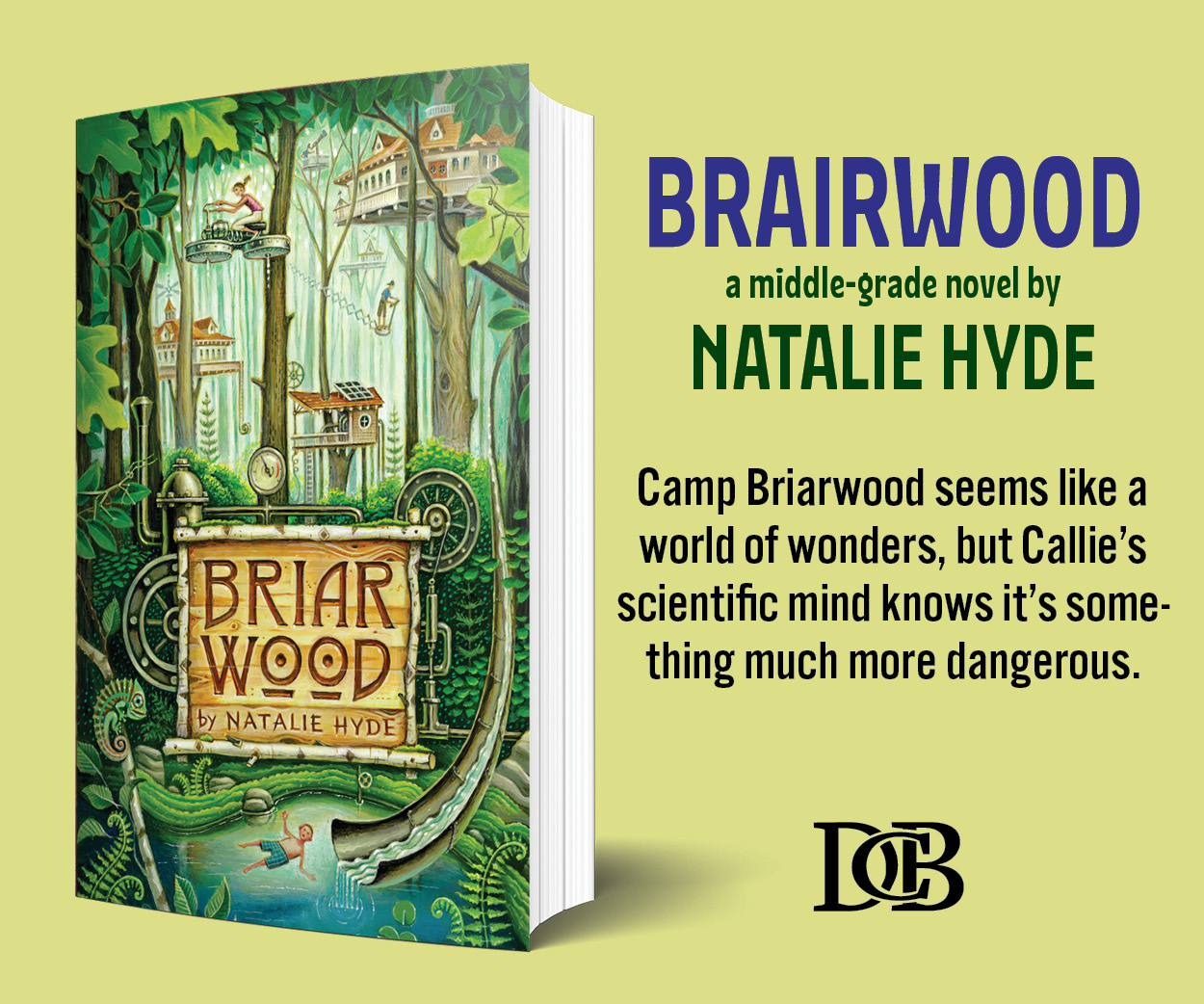Making a skating rink, and other tricks for stepping away from a work-in-progress
By Lindsay Zier-Vogel
On a particularly cold Friday morning, I piled my kids in a car with snow pants and skates and a pile of books and we headed to a cottage rental. We all were desperate for a change of scenery, and I was trying to take some space from my novel-in-progress. I needed to cut at least 20,000 words, so I knew needed to come back to it with clear eyes and a fresh perspective.
I had visions of my kids skating on the lake, but when I shovelled the snow off a patch near the shoreline, it was bumpy and hard to skate on. Usually, I’d have shrugged, and headed back up to the cabin to read my WIP by the wood burning stove, but I didn’t have it with me.
It was disorienting not to have my fictional world to slip into. I felt at loose ends and didn’t know what to do with the afternoon, so I started carrying down water down to the lake—pots and roasting pans and coffee thermoses. The hill was steep and snowy, but I carried these vessels down to the shovelled-off rectangle. I poured, and then smoothed the quickly-freezing water with a shovel. Pot by pot, roasting pan by roasting pan, I poured and scraped, poured and scraped.
It was rhythmic, if very inefficient, this process of hiking up to the cottage to fill pots with water then slipping and sliding down the hill to the lake to pour and smooth, but the process was deeply satisfying. Unlike with my manuscript, where progress can be so hard to measure, the progress on my lake rink was so clearly marked, my effort so apparent.
I spent hours on this little rink. Hours, that, if I’d had my manuscript with me, would’ve felt like wasted hours, but I had nothing else to do, except flood and scrape and flood and scrape. The next morning, I got to sit in a snowbank and watch my kids skate on my icy masterpiece.
I realized, sitting in the snow, that the hardest part of writing for me isn’t actually writing. It’s not writing. It’s taking time away from whatever project I’m working on. It’s critical, this time away, and necessary for me to find objectivity and critical distance, to see the bigger picture, which I can’t do when I’m inside a project, but it’s not easy for me to take this time.
My lake rink was a perfect distraction, but now that I’m back in the city, I’ve been looking for other ways to create critical distance from my manuscript.
Here are seven tips (that aren’t making ice rinks) for stepping away from your WIP:
Visit another WIP
My favourite thing to do when I’m taking a break from a project is to return to another project and pick up where I left off. This time round I don’t have another project to pick up, but I really wish I did!
Your CanLit News
Subscribe to Open Book’s newsletter to get local book events, literary content, writing tips, and more in your inbox
Work in a different form
When I’m inside my novel, I can only see things through a prose lens, so stepping away from my manuscript means that I can switch lenses. Maybe you have a poem rattling around, or the first line of a picture book—this is a great window to invest in playing with other forms.
Editing friends’ work
If I can’t be inside my own work, the next best thing is being inside my writing friends’ work. This is the best time for me to be a beta reader, and providing feedback for others’ writing. It also helps me sharpen my analytical lens which will be so helpful when I eventually return to my own WIP.
Work on grant applications
Grant deadlines are still a ways off (CCA: April 6; TAC: June 1; OAC: Sept 8), but this is a perfect time to write about your WIP in grant-speak. Write out the synopsis! Write about how it’s “innovative”! Update your writing CV! (And if you need any grant writing inspiration, head over here!)
Reading
Using my writing time to read means I can access the joy of slipping into a fictional world. Time to tackle that towering TBR pile! (Some tips on reading in 2022!)
Submissions and pitches
This is a great window to submit the poem that has been sitting on your desktop for months, and pitch that article idea you’ve been sitting on. Toss some more balls in the air!
Doing something that has nothing to do with words
There’s so much value in doing something completely not-writing related. Make your own lake rink (ha)! Knit! Bake muffins! Find the perfect mac and cheese recipe! Watch Netflix! Stare at the wall! Your WIP will thank you for it.
The views expressed by Open Book columnists are those held by the authors and do not necessarily reflect the views of Open Book.
Lindsay Zier-Vogel is an author, arts educator, grant writer, and the creator of the internationally acclaimed Love Lettering Project. After studying contemporary dance, she received her MA in Creative Writing from the University of Toronto. She is the author of the acclaimed debut novel Letters to Amelia and her work has been published widely in Canada and the UK. Dear Street is Lindsay’s first picture book, and is a 2023 Junior Library Guild pick, a 2023 Canadian Children’s Book Centre book of the year, and has been nominated for a Forest of Reading Blue Spruce Award. Since 2001, she has been teaching creative writing workshops in schools and communities, and as the creator of the Love Lettering Project, Lindsay has asked people all over the world to write love letters to their communities and hide them for strangers to find, spreading place-based love.




